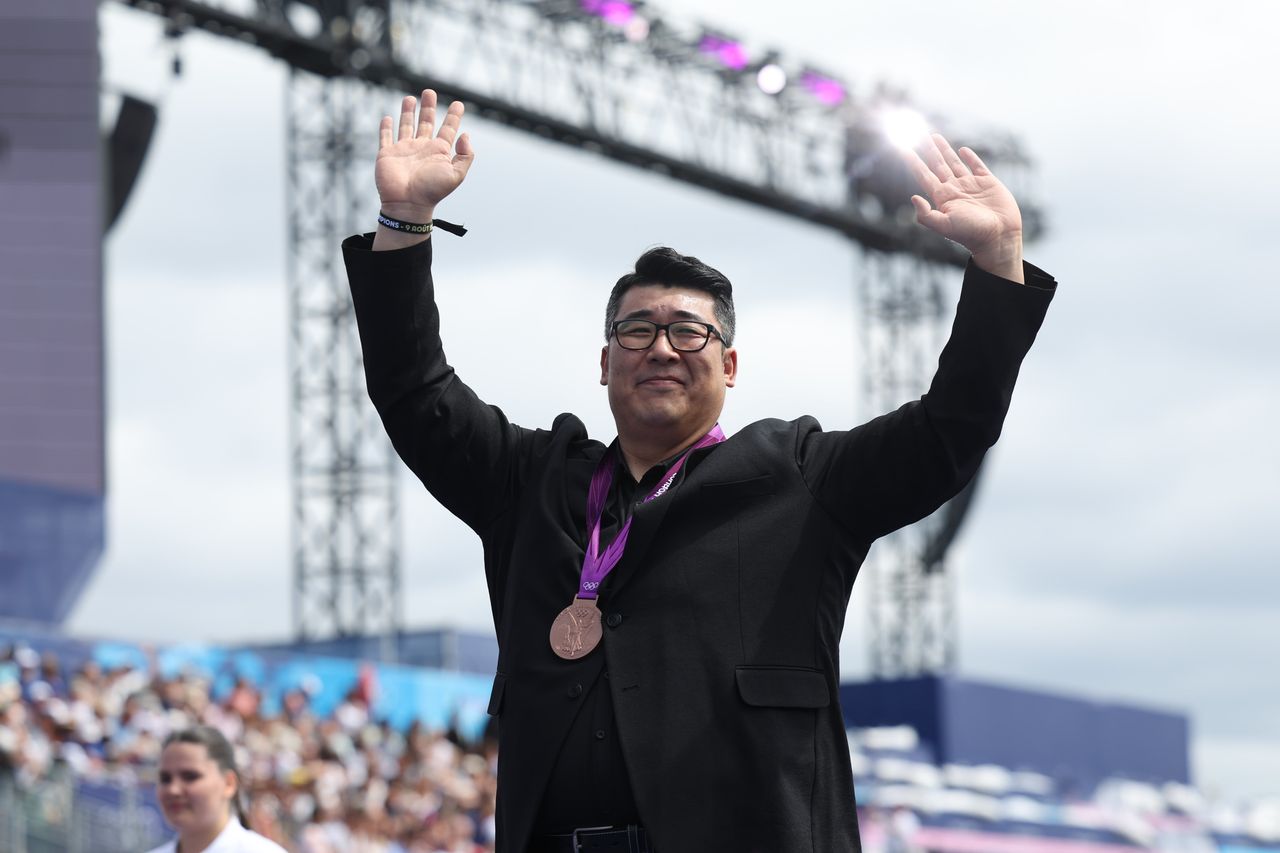This Former Athlete Received Medals After The 12 Years Ago Race At The 2024 Paris Olympics

Twelve years after competing in the Olympics which turned out to be his last Olympics, South Korea's former weightlifter received his bronze medal at a ceremony in Paris, France on Friday.
In a special ceremony near the Eiffel Tower on the sidelines of the 33rd Olympics, Jeon received a bronze medal from the men's +105 kilograms at the 2012 London Olympics.
Jeon, who is now 43 years old, has long retired from weightlifting.
In the 2012 London Olympics, Jeon was originally in fourth place with a total weight of 436 kg. Ruslan Albegov from Russia has won a bronze medal in the 448 kg class.
However, Albegov's medal was lifted in March this year due to doping. The Executive Board of the International Olympic Committee approved the reallocation of the medal in the same month.
Jeon, who wore a black suit, received a lively applause from the crowd gathered at Champions Park near the iconic tower.
"I'm afraid this won't feel the same as last 12 years. However, it feels good to be here today," Jeon said with a smile, launching The Korea Times on August 10.
"Usually I'm quite shy, and I don't think I'm going to do much to celebrate. However, when people cheer, my hands are immediately raised. I celebrate with confidence," he continued.
Ten Olympians who competed at #Sydney2000, #Beijing2008 and #London2012 today received their medals during a special reallocation ceremony at the Champions Park in Paris. Catch all the action here: https://t.co/YGUhcdOnqG pic.twitter.com/1guk96KlQG
— IOC MEDIA (@iocmedia) August 9, 2024
Ten Olympians who competed at #Sydney2000, #Beijing2008 and #London2012 today received their medals during a special reallocation ceremony at the Champions Park in Paris. Catch all the action here: https://t.co/YGUhcdOnqG pic.twitter.com/1guk96KlQG
After retiring, he served as head coach of the KOMSCO company's lifting team, but after the team disbanded in 2014, Jeon worked in an office at the state-owned money printing body.
Jeon said she had accepted her defeat at the London Olympics, where she was considered a medal-winning candidate, and she had long forgotten her disappointment.
"Doping must be eliminated," said Jeon.
"I hope this medal reallocation will help in that," he said.
Jeon is not the only athlete to receive a medal after the reallocation decision by the International Olympic Committee (IOC). Citing the IOC website, a total of 10 athletes received medals.
Apart from Jeon, there are Beverly McDonald (Jamika, Lari 200m Women, 2000 Sydney Olympics, bronze medal), Chelseacheam-Ross (Jamaka, Jalan Jatong, 2008 Beijing Olympics, bronze medal), Tarek Yehiza Fouad Abdelazim (Egypt, Weightlifting 85kg Men, 2012 London Olympics, bronze medal), Erik Kynard (US), Male High Jump, London Olympics, gold medal), Derek Drouin (Canada, Male High Jump, London Olympics, silver medal), Abeba Aregawi (Women's 1,500m Run, London Olympics, bronze medal. And, 2012 London Olympic Women's 400m Gawang Run, Lashinda Demus - AS (gold), Zuzana Hejnova - Czech Republic (silver) and Kaliese Spencer - Jamaica (match).
The handover was made by members of the International Olympic Committee (IOC) and Chairman of the IOC Athlete Commission (AC) Emma Terho, as well as IOC members and five-time Olympic biathlon champion Martin Fourcade.
"These athletes competed fairly throughout their careers with the real spirit of the Olympics," said Terho.
SEE ALSO:
"I'm happy that we can celebrate in locations that match their achievements, and that they have enjoyed a special experience with their family in Paris."
It is said, medal reallocation plays an important role in enforcing Olympic values and rewarding those who remain loyal to sport. Olympic Medal Reallocation Principles support Athletes' Declaration and their aspirations to increase the ability and opportunity for athletes to become part of a sports environment that is transparent, fair, and clean, especially the environment that fights competition doping and manipulation.
The reallocation of Olympic medals was not carried out automatically, and was decided by the IOC by case. If the IOC decides to reallocate the Olympic medal, this is only done after all legal remedies have been made by sanctioned athletes or teams and after all procedures have been closed.
